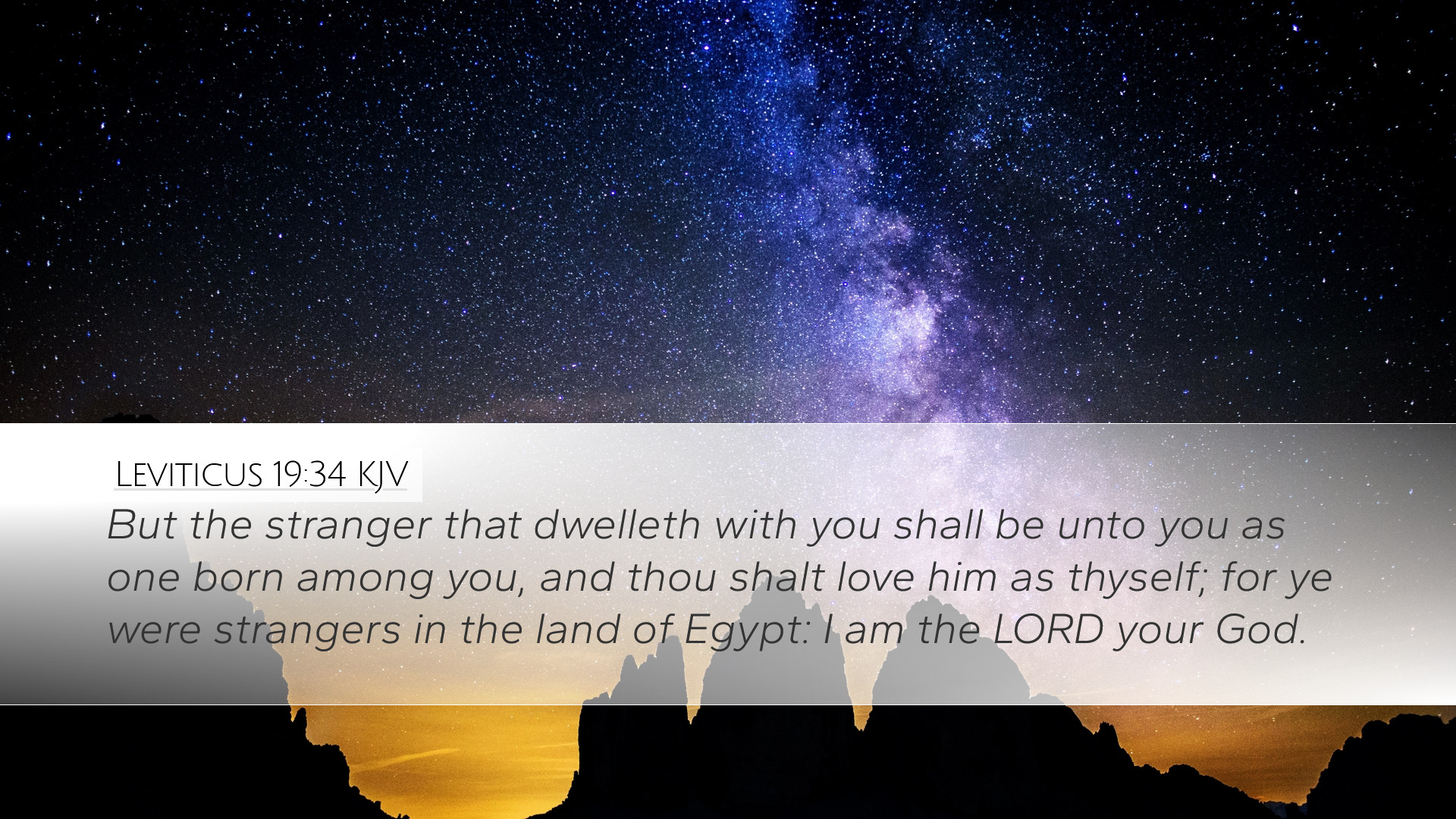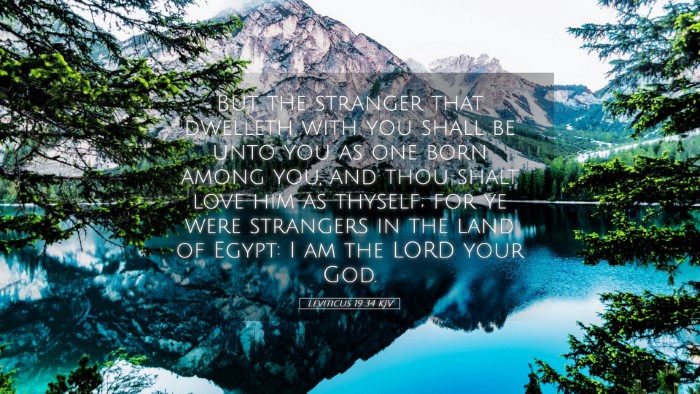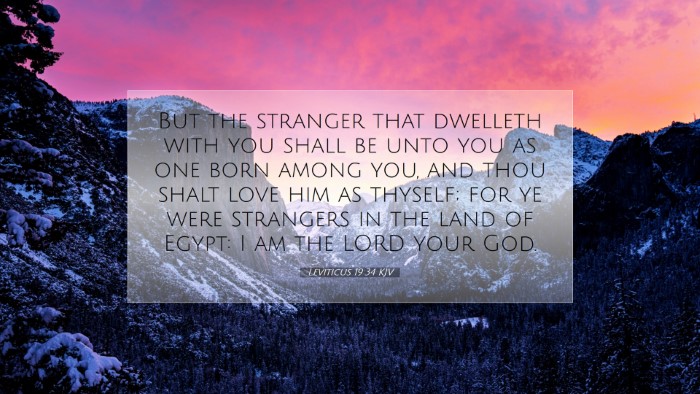Commentary on Leviticus 19:34
Leviticus 19:34 states: "But the stranger that dwelleth with you shall be unto you as one born among you, and thou shalt love him as thyself; for ye were strangers in the land of Egypt: I am the Lord your God." This verse encapsulates a profound mandate for love and inclusion, reflecting God's overarching principles of kindness and social justice, an important theme within the Torah.
Context of Leviticus 19
This chapter is often referred to as the "Holiness Code," which addresses the ethical and moral conduct expected from the Israelites as a holy nation. This verse is positioned within a vivid context of communal responsibility, exhorting the people of Israel to exhibit the same compassion that God has shown them. The notion of the 'stranger' signifies those who may be considered outsiders, yet are deserving of love and acceptance.
Love for the Stranger
The command to love the stranger as oneself emphasizes the universality of God's love. Matthew Henry underscores this command by noting that love is not to be limited to fellow Israelites but extended to foreigners. He states that God's people are called to higher standards of morality, demonstrating love regardless of national or ethnic identity.
Insights from Matthew Henry
- Universal Application: Henry highlights that the injunction is not simply about national solidarity but embodies a broader ethical concern, laying a moral foundation for future interactions with those outside Israel.
- Reflecting Divine Character: He argues that such love mirrors the character of God, who is merciful and compassionate, always welcoming the alien and the outcast.
Insights from Albert Barnes
- Historical Context: Barnes provides context by reminding us that this directive is rooted in Israel's own experience as strangers in Egypt, fostering a sense of empathy rooted in shared history.
- Theological Reflection: He interprets this command as a theological reflection of God's redemptive plan, where inclusivity becomes a form of reflecting God’s grace toward all humanity.
Insights from Adam Clarke
- Social Justice: Clarke emphasizes the importance of social justice in this command. He posits that loving the stranger results in a just society, where everyone, regardless of background, is treated with dignity.
- Call for Action: Clarke further articulates that this verse necessitates active engagement—love must be shown through actions that support and protect the vulnerable and marginalized.
Theological Implications
This verse presents serious theological implications regarding the nature of God’s love and the responsibilities of His followers. Pastors and theologians may draw upon this scripture to advocate for inclusivity in their congregations and communities, fostering environments that mirror the love of God.
Application for Church Leaders
- Preaching on Inclusion: Church leaders can incorporate this verse into their sermons to highlight the importance of embracing diversity within the church community.
- Community Service: Encouraging congregations to engage in acts of service directed at helping immigrants and marginalized groups reflects the principles taught in Leviticus 19:34.
- Creating Safe Spaces: Leaders should aim to create safe spaces for strangers and outsiders within their communities, integrating Levitical ethics into church practice.
Conclusion
Leviticus 19:34 prompts a profound call to action concerning love, acceptance, and social justice. The insights drawn from public domain commentators invite pastors, students, and scholars alike to engage deeply with the text, uncovering layers of meaning that challenge believers to live out the radical love that God models. The command to love the stranger serves as a cornerstone for ethical behavior in the life of faith, calling each individual to remember their own history of being and to embody a community that reflects God's love for all.


